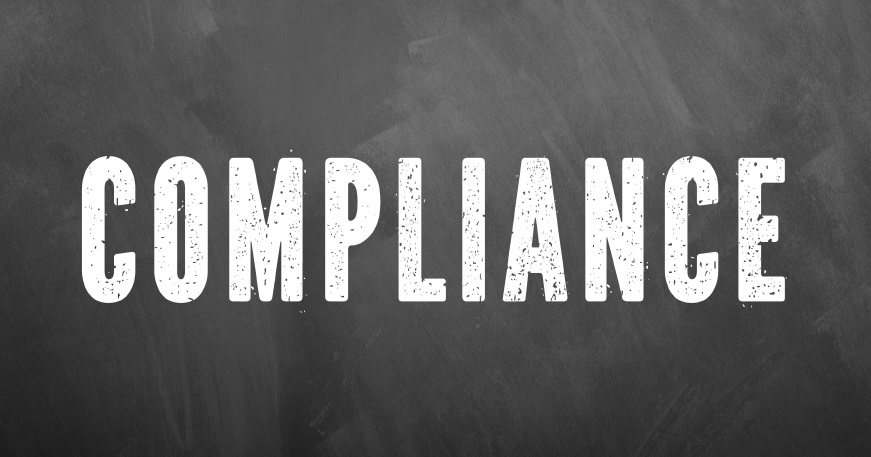What is Compliance Management? From implementation methods to key points for success

Compliance considerations are essential for a company to remain in business for a long time. However, many people may wonder what compliance means in the first place. To prevent noncompliance from occurring in your company, it is important to have a clear understanding of compliance.
In this issue, we will introduce the details of compliance management, including the background of its importance and examples of violations. We will also introduce methods of implementing compliance management and points to consider when implementing compliance management.
Contents
- 03How to Implement Compliance Management
- Identify potential risks in business processes
- Conduct compliance training
- Conduct a review of the company's internal culture
- Properly manage documents, etc.
- Establish a compliance consultation service
What is Compliance Management? Background of Importance

The word "compliance" means "observance of laws and regulations," and compliance management refers to management that observes laws and regulations and practices them while respecting corporate ethics.
For a company to continue to operate, it is important to be trusted by society. However, against the backdrop of a series of corporate scandals, such as window dressing, the term "compliance" has become often heard.
In today's world of corporate scandals, a single scandal can cause significant damage to a company. On the other hand, a company that is able to manage risks against fraud will be trusted by society and its corporate value will increase. In corporate management, it is very important to be aware of compliance.
Benefits of Increased Compliance
There are many positive benefits to a company if it can strengthen its compliance. Here are some specific benefits.
The first advantage is the ability to consider long-term profits. In management without awareness of compliance, it is often the case that only immediate profits are pursued. However, by being aware of compliance, one can make decisions based on sincere values and generate profits from a long-term perspective.
The second benefit is that investors will appreciate the company's reputation. Some investors place importance on "corporate social responsibility (CSR). In the current climate of intense scrutiny of companies, a company that emphasizes compliance management will be evaluated by investors and will have an advantage in fundraising and other situations.
Back to ContentsExamples of non-compliance

There are many examples of noncompliance by companies, three of which are discussed in this article.
Labor Standards Act
Although reforms in work styles are currently being promoted, there are still a few companies that manage their businesses in violation of the Labor Standards Law, most notably by working long hours and failing to pay overtime. This is one of the most common examples of noncompliance.
Leakage of personal information
With the revision of the Personal Information Protection Law, public scrutiny of the handling of personal information has become extremely strict. Even with the best security measures in place, it is not uncommon for personal information to be leaked due to unauthorized access.
Harassment
There are many types of harassment, including "sexual harassment" and "power harassment. Whether an action or speech constitutes harassment is determined by the perception of the recipient.
Actions and behaviors that were previously considered not to constitute harassment may now constitute harassment.
Back to ContentsHow to Implement Compliance Management

There are many ways to implement compliance management, so consider which method is right for you. Here we introduce five methods.
Identify potential risks in business processes
Compliance violations can arise from day-to-day operations. Therefore, we should start by identifying any hidden risks in our daily business processes.
One specific method is to conduct interviews with employees. The key is to confirm whether or not there is any dissatisfaction with the organization, such as whether the working hours are too long, whether the manuals are appropriate, etc.
Conduct compliance training
Conducting compliance training for all employees is an effective way to develop employees' sense of ethics and morals. Share the rules that should be followed within the company and what is considered common sense by the public.
It is also essential to educate employees on knowledge of laws and regulations. Without knowledge of laws and regulations, employees may not realize that they are not in compliance.
Conduct a review of the company's internal culture
Even if training emphasizes the importance of compliance, employee awareness needs to change in order to put it into practice in the workplace. If employees' awareness of compliance has waned as they prioritize results, the first step is to review the internal culture of the company.
It is recommended that management communicate the importance of compliance management to employees by disseminating information on what to do if fraud is discovered.
Properly manage documents, etc.
If you handle a large number of documents on a daily basis, you must properly manage them. If sensitive documents are accessible to anyone or not filed, reconsider the management method.
If you are feeling the limitations of paper-based management, a paperless approach is recommended. There are many advantages, such as easy sharing and cutting printing costs.
Establish a compliance consultation service
To prevent rampant fraud within your company, set up a compliance consultation service. If there is an environment in which fraud can be brought to light from within the company, it will be possible to take prompt action when a problem arises.
It is important to respect the whistleblower's wishes by not treating the whistleblower unfavorably.
Back to ContentsKey points when implementing compliance management

In order to implement compliance management, it is important to keep the following points in mind. Keep the following two points in mind when implementing compliance management.
Management provides leadership.
Unless management demonstrates a strong commitment to implementing compliance management, employees will not recognize the importance of compliance. By ensuring that fraud will never occur and by demonstrating serious leadership by management, employees will become more aware of the importance of compliance.
Develop a dedicated compliance staff
To implement compliance management over the long term, develop dedicated compliance personnel in your company. Although a third-party checking organization can be used, if you train a person in charge within your company in advance, you will not need to rely on outside personnel.
Make an effort to have a dedicated person in each department, if possible, by having them participate in outside workshops.
Back to ContentsSummary
In this issue, we gave an overview of compliance management, taking into account examples of compliance violations.
It is important for a company to work on strengthening compliance in order to continue its business activities. Management should be aware of the importance of compliance while also working on risk management.
Please use the compliance training contents of "learningBOX ON" to inform your employees about compliance within your company.
learningBOX is a cloud-based elearning platform
and you can easily build training courses online.
Created content will be delivered to employees and you can track their learning progress.
In addition to the flexible content creation, personalized learning will boost each employee's understanding and knowledge by customizable settings.
There will be something you can do to improve your work environment.
▼You may also like:
Back to Contents Back to Article List


















